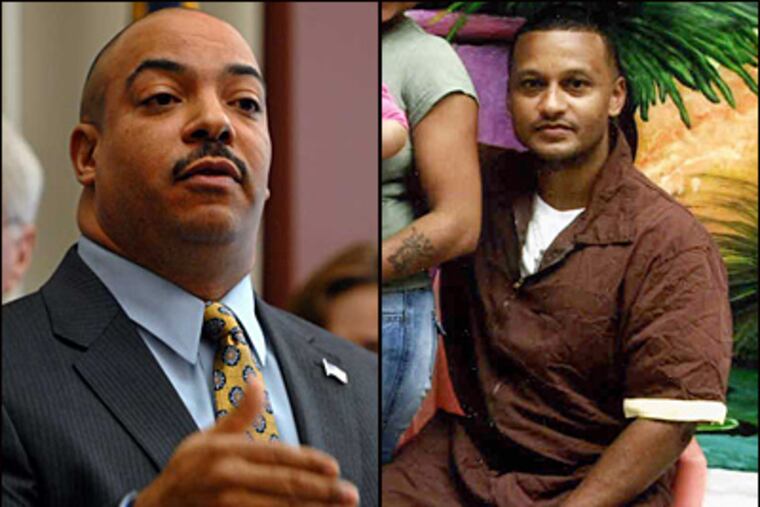Stu Bykofsky: OF THE LAW, A 'MISTAKE' & THE SCENT OF SKUNK
MARCUS PEREZ had another day in court Friday and it did not go well, but it did result in the D.A.'s office admitting to a mistake. That's a start.

MARCUS PEREZ had another day in court Friday and it did not go well, but it did result in the D.A.'s office admitting to a mistake. That's a start.
Perez pleaded guilty to a 1989 homicide in exchange for a 17 1/2- to 35-year sentence that was inaccurately explained to him by then-Common Pleas Judge Theodore McKee.
Perez wound up with life without parole, even though McKee told him he'd be eligible for parole after 15 years.
For 22 years Perez has been paying for McKee's mistake and filing appeals under the Post-Conviction Relief Act to get the sentence he was promised. McKee, who has since been elevated to chief judge of the U.S. Third Circuit Court of Appeals, has told me that he was "dead wrong" in explaining the sentencing to Perez, charged with homicide when he was a stupid 19-year-old high-school dropout.
One issue is the wrong information given to Perez. A second issue is a change made to the court record that violated procedure.
Friday, the D.A.'s brief told the court that there was a hearing in 1994 to discuss the transcript change before Judge Joseph Papalini.
What the D.A. failed to mention, but Papalini's opinion did mention, was that neither Perez nor his attorney was present.
"We were not informed of that hearing," Perez says.
At Friday's hearing, Assistant D.A. Barbara Paul admitted that the D.A. "may have been incorrect" about counsel being present. She also acknowledged that Assistant D.A. Jerome Teresinski had contacted court reporter Kenneth Brown in 1994 about fixing a "typographical" error in the transcript. That is improper.
The proper procedure, says a spokesman for the First Judicial District, is for a request to go to the trial judge. If the change is warranted, the judge notifies all parties and orders the court reporter to make it.
The trial judge was McKee, who told me Friday that he was not contacted about the "correction," which was requested after a delay of four years. "It is peculiar that a D.A. who had no first-hand knowledge of what was said during the sentencing" would be the one to "correct" a transcript, McKee said, then challenged the D.A. to produce someone to say under oath that he had been notified. The "correction" cut the legs from beneath Perez's appeal.
Transcript changes are rare and delays of four years are incredibly unusual, judges tell me. This one is suspicious because it was McKee's own words that were altered. So how did that happen?
Teresinski and Brown won't talk to me, with Brown having said that he's been warned to keep his mouth shut. By whom? Why? Is justice being served here, or being squelched?
I'm not a judge, I'm not a lawyer, but you don't have to work in animal control to smell a skunk.
From the bench, Common Pleas Judge Glenn Bronson on Friday said that Perez's appeal had two possibilities: Was there new evidence or was there new law?
Perez's pro bono attorney, Daniel McGarrigle, of the Henry Law Firm, argued that there is new evidence - statements by McKee to the Daily News that he was "dead wrong" - and new law, a recent state Supreme Court ruling. Bronson did not agree, but is allowing McGarrigle to present an argument by June 8 that recent U.S. Supreme Court decisions guaranteeing a right to effective counsel "at every stage" of criminal proceedings - even the plea bargain - might apply here.
Bronson has a solid reputation and will hear McGarrigle out, but I wish he'd use his position to get answers to questions of impropriety embedded in this case.
So, Perez remains a lifer while his case staggers forward, its mysteries intact, enmeshed in arguments about "procedure" while "justice" slumps in the spectator section of the court.